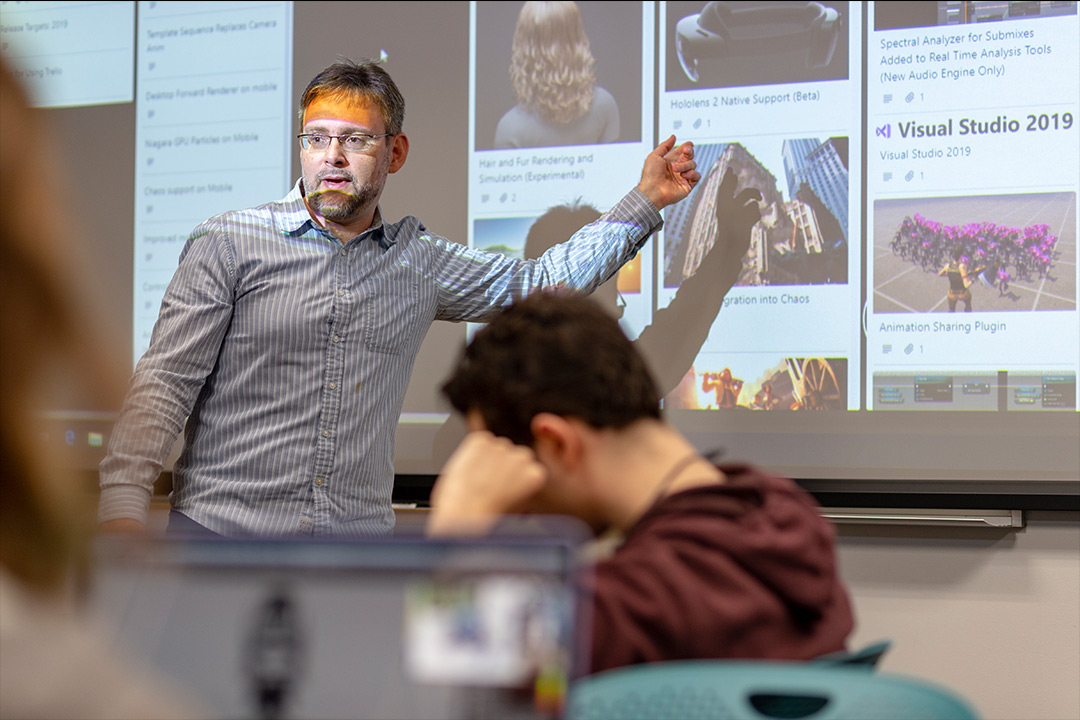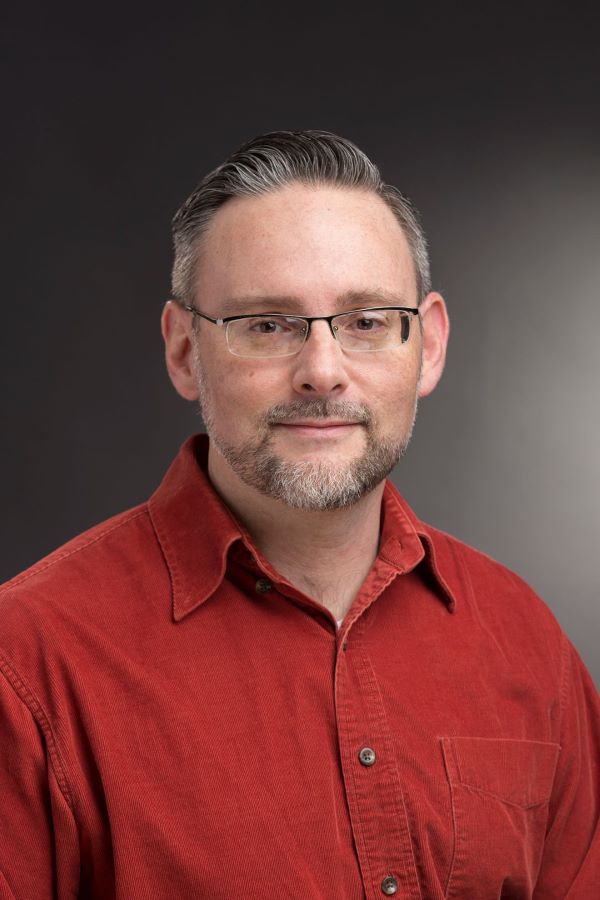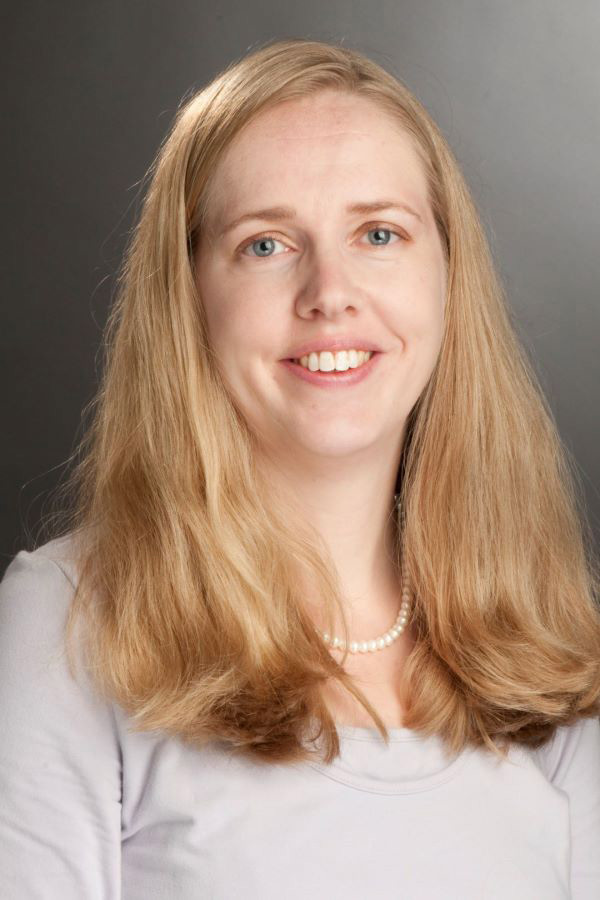RIT experts make their mark on Hollywood at digital AI summit
Industry experts share thoughts and experiences using new technologies in creative spaces
Elizabeth Lamark
Professor Shaun Foster, pictured, joined faculty members Frank Deese and Cecilia Alm at the virtual Digital Hollywood AI Summer Summit, which featured presentations on generative AI in the entertainment and media industries from those leading the charge of this transformation in innovation.
RIT experts in artificial intelligence, screenwriting, and digital design made their mark on Hollywood this week at one of the world’s foremost conferences on entertainment, media, and technology.
The Digital Hollywood AI Summer Summit, held virtually July 22-24, featured presentations on generative AI in the entertainment and media industries from those leading the charge of this transformation in innovation.
Representing RIT at the summit:
Provided
Frank Deese
Frank Deese, associate professor in the School of Film and Animation, College of Art and Design, presented “AI & The Hollywood Writer & Director: Man-Made/Machine Made – Screenwriter vs. The Machine.” In this session, Deese, a 25-year screenwriting veteran, and panelists discussed the process of AI screenwriting and producing by competing with the latest AI Hollywood software to create a compelling story from concept to completion. Deese’s blog captured his feedback from the presentation.
Deese’s credits include a teleplay for Ghost Train, directed by Steven Spielberg, and film credits for The Principal with Jim Belushi, and the semi-autobiographical Josh & S.A.M., which starred Jacob Tierney, Martha Plimpton, and a young Jake Gyllenhaal. He has written scripts for Universal Pictures, Castle Rock Entertainment, and Dreamworks, and has advocated for instruction in virtual production and low-budget previsualization for student films using the Unreal Game Engine.
Provided
Shaun Foster
Shaun Foster, professor in the School of Design and undergraduate program director for 3D digital design, presented “AI, Video, 3D Images, Photography and Computer Vision-The Revolutionary Technology.” Foster, who is an expert in next-generation interactive 3D, and other visual artists talked about his experiences in applying video and image manipulators, enhancers, and upscalers to creative works. In his blog, Foster relays his thoughts on how AI is shaping the future of art in digital Hollywood.
Foster is currently focused on XR/VR eye tracking, AI, virtual production, and collaborative 3D through Unreal Engine Fortnite. This summer, he is working on an international collaboration using Unreal Engine Fortnite, dealing with the convergence of 3D digital design with emerging generative AI, collaboration, and education.
Cecilia Alm, a professor affiliated with the Department of Psychology and the School of Information, participated as a panelist in “Virtual Human Exploration: Nuance & Emotion, Vocal Expression, Facial Movements, Sentiment, Hyper-Realistic Synthesis of Prose,” which explored whether humans are capable of creating emotional binds with virtual or synthetic beings. Films such as Her and Blade Runner introduced the topic and, today, conversations with chatbots are becoming more advanced in their ability to explore complex, philosophical, and emotional questions.
Provided
Cecilia Alm
Alm is the joint program director for RIT’s master’s in artificial intelligence program, directs the Computational Linguistics and Speech Processing Lab, and serves as an associate director for the Center for Human-aware AI. Her research interests focus on human-inspired multimodal AI systems, AI in affective computing, and AI workforce preparation.
RIT has long made important contributions to the entertainment industry. This fall, the university is increasing its presence in Los Angeles through RIT LA, an integrated academic and research program led by former Disney executive and RIT alumnus Tom Connor who joined RIT last year as assistant provost and professor of practice.
“It’s exciting to showcase our faculty’s expertise in forums like Digital Hollywood,” said Connor. “RIT has long been a pioneer in the sci-tech side of entertainment. Our faculty are uniquely qualified to contribute to emerging issues at the nexus of technology and creativity and many of our alumni are industry leaders in these areas.”
Videos of the presentations featuring faculty members Frank Deese, Shaun Foster, and Cecilia Alm are available.











